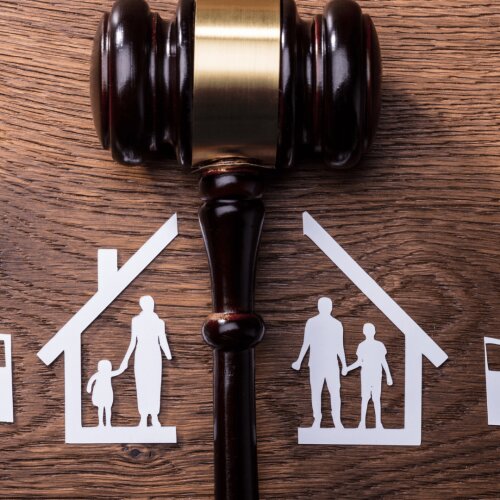Best Domestic Violence Lawyers in Brasília
Share your needs with us, get contacted by law firms.
Free. Takes 2 min.
Free Guide to Hiring a Family Lawyer
List of the best lawyers in Brasília, Brazil
About Domestic Violence Law in Brasília, Brazil
Domestic violence is a serious issue in Brasília and throughout Brazil, impacting people of various backgrounds and ages. The country has established comprehensive legislation aimed at protecting victims, punishing offenders, and preventing further abuse. In Brasília, the legal system closely follows federal laws with a focus on supporting victims, ensuring their immediate safety, and facilitating access to justice. Domestic violence in Brazil includes a range of physical, psychological, sexual, patrimonial, and moral abuses that occur within the family or between intimate partners, regardless of gender or sexual orientation.
Why You May Need a Lawyer
If you are experiencing or have been accused of domestic violence in Brasília, consulting a lawyer can be crucial for several reasons. Victims often need assistance with protective orders, filing police reports, navigating the justice system, or dealing with child custody and divorce proceedings. Accused individuals may need legal defense to ensure a fair trial and protect their rights. In all situations, legal advice can help you understand your rights, obligations, and available protections under Brazilian law, ensuring you do not face the process alone.
Local Laws Overview
The principal domestic violence law in Brazil is the Lei Maria da Penha (Law 11.340/2006), which applies throughout the country, including Brasília. This law provides for the immediate protection of victims, such as temporary restraining orders, removal of the aggressor from the home, and specialized police stations and courts for domestic violence cases. Other relevant laws include provisions in the Brazilian Penal Code and laws ensuring the confidentiality and dignity of victims. Brasília has established networks of support services, shelters, and specialized courts to ensure the effective application of these laws and proper care for victims.
Frequently Asked Questions
What is considered domestic violence under Brazilian law?
Domestic violence includes physical, psychological, sexual, patrimonial, and moral harm committed against family members or people in intimate relationships, regardless of gender.
What should I do if I am a victim of domestic violence in Brasília?
Seek immediate safety, contact the police by dialing 190, visit a Women's Police Station (Delegacia da Mulher), and consider seeking shelter or medical attention. Obtain legal assistance to explore protective measures and file a report.
How quickly can I get a restraining order in Brasília?
The Lei Maria da Penha allows judges to grant emergency protective measures, such as restraining orders, within 48 hours of a request. In urgent cases, police authorities may take initial protective actions until a judge issues a formal order.
Can men be victims of domestic violence?
Yes. While Brazilian law provides specific mechanisms for female victims, anyone can potentially be a victim of domestic violence and is entitled to protection and support.
Can I file a domestic violence complaint anonymously?
You can make an anonymous report through social services or by contacting the national hotline number 180. However, for legal proceedings and protective measures, your identity will generally need to be disclosed.
What happens after I file a police report?
An investigation will begin, and the authorities may offer protection measures. The Public Prosecutor's Office will decide whether to proceed with charges, and the case may be handled by a specialized domestic violence court.
Is domestic violence only physical abuse?
No. Domestic violence also includes psychological, sexual, patrimonial (economic), and moral (defamation, insult) abuse, even if there are no visible injuries.
What legal protections exist for children witnessing domestic violence?
Brazilian law views children who witness domestic violence as victims and offers special protection, including psychological support, protective measures, and involvement of child welfare authorities.
Can the victim withdraw a complaint?
While victims can express their wishes, domestic violence cases are considered crimes against public order, and the Public Prosecutor’s Office may proceed with prosecution even if the victim changes their mind.
Will my confidentiality be protected during the process?
Yes. Legal proceedings in domestic violence cases prioritize the confidentiality and dignity of victims, with hearings often held privately and personal details protected.
Additional Resources
There are several organizations and governmental bodies in Brasília dedicated to supporting victims of domestic violence and ensuring access to justice. These include:
- Delegacia Especial de Atendimento à Mulher (DEAM) – Specialized police stations for women reporting domestic violence
- Defensoria Pública do Distrito Federal – Public Defender’s Office offers free legal assistance to those who cannot afford it
- Centros de Referência de Atendimento à Mulher (CRAM) – Reference centers providing psychological, legal, and social support
- Casa Abrigo – Shelters for victims in situations of imminent risk
- Ministério Público do Distrito Federal e Territórios – Public Prosecutor’s Office for criminal prosecutions and victim support
- Disque 180 – National helpline for reporting and obtaining information about violence against women
Next Steps
If you need legal assistance with a domestic violence case in Brasília, consider the following steps:
- Prioritize your immediate safety. In emergencies, leave the dangerous environment and seek police or medical help.
- File a police report at a Delegacia da Mulher or the nearest police station.
- Contact the Public Defender’s Office if you require free legal representation.
- Reach out to local support organizations for emotional, psychological, and practical assistance.
- Consult a lawyer who specializes in domestic violence to understand your rights, explore your options, and prepare any necessary legal documents.
- Document all incidents and keep a record of evidence if possible (messages, injuries, witnesses).
- Follow up regularly with authorities and support organizations regarding the progress of your case and protective measures.
Lawzana helps you find the best lawyers and law firms in Brasília through a curated and pre-screened list of qualified legal professionals. Our platform offers rankings and detailed profiles of attorneys and law firms, allowing you to compare based on practice areas, including Domestic Violence, experience, and client feedback.
Each profile includes a description of the firm's areas of practice, client reviews, team members and partners, year of establishment, spoken languages, office locations, contact information, social media presence, and any published articles or resources. Most firms on our platform speak English and are experienced in both local and international legal matters.
Get a quote from top-rated law firms in Brasília, Brazil — quickly, securely, and without unnecessary hassle.
Disclaimer:
The information provided on this page is for general informational purposes only and does not constitute legal advice. While we strive to ensure the accuracy and relevance of the content, legal information may change over time, and interpretations of the law can vary. You should always consult with a qualified legal professional for advice specific to your situation.
We disclaim all liability for actions taken or not taken based on the content of this page. If you believe any information is incorrect or outdated, please contact us, and we will review and update it where appropriate.










